Pakistan and China call for peace in South Asia
Chinese Permanent Representative to UN Fu Cong calls on Bilawal Bhutto-led parliamentary delegation
June 02, 2025
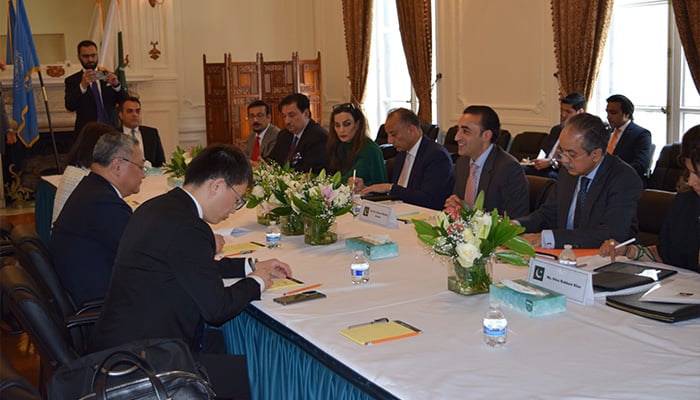
- Bilawal expresses gratitude for unequivocal support from China.
- Says India rejected Pakistan's offer for independent probe.
- Both sides agree that aggressive posturing must be firmly opposed.
The Permanent Representative of the People's Republic of China to the United Nations, Ambassador Fu Cong, called on the high-level parliamentary delegation led by former foreign minister and the Pakistan Peoples Party Chairman Bilawal Bhutto Zardari.
The discussion centred around the evolving security situation in South Asia in the wake of India's recent aggression and Pakistan's consistent efforts to uphold peace and stability.
During the meeting, Bilawal expressed heartfelt gratitude from the people of Pakistan for the unequivocal support extended by China during Indian provocation.
He apprised the Chinese side of the developments following the Pahalgam attack of April 22 and Pakistan's responsible and restrained conduct in response to India's belligerent posture.
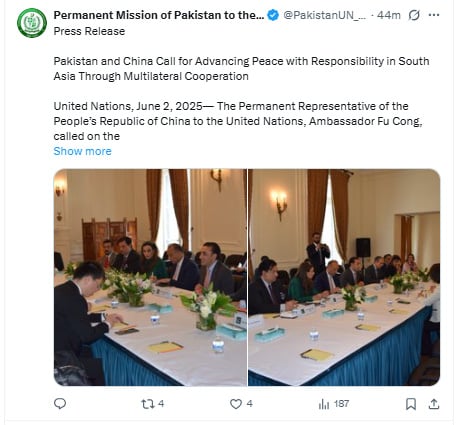
He emphasised that it was regrettable that Pakistan's offer of credible, impartial and independent investigations was rejected by India.
Bilawal reiterated the centrality of resolving the Jammu and Kashmir dispute for sustainable peace in South Asia and urged China to play its role in the resolution of the Kashmir dispute in accordance with the Security Council resolutions through multilateral cooperation and engagement.
He emphasised the urgent need for the international community to transition from conflict management to conflict resolution for lasting peace in South Asia.
The delegation also shared details of India's arbitrary attacks on Pakistani territory, its deliberate targeting of civilians, its active involvement in funding and supporting terrorism in Pakistan, and the provocative decision to hold in abeyance the Indus Waters Treaty — a move equated to the weaponisation of water and a violation of international law.
Both sides agreed that aggressive posturing and unilateral actions threaten peace in the region and must be firmly opposed. Both sides also expressed their shared commitment to peaceful resolution of disputes, multilateral cooperation, upholding the principles of the UN Charter, preserving the sanctity of treaties and respect for international law.
After concluding the talks, Bilawal expressed his views on X.
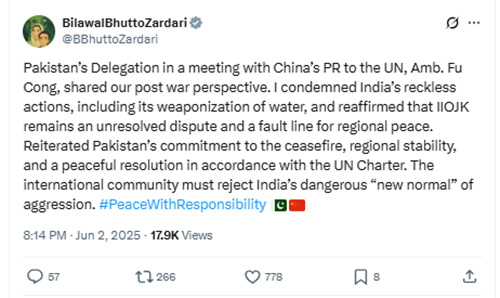
He said: "I condemned India's reckless actions, including its weaponisation of water, and reaffirmed that IIOJK remains an unresolved dispute and a fault line for regional peace. Reiterated Pakistan’s commitment to the ceasefire, regional stability, and a peaceful resolution in accordance with the UN Charter."
"The international community must reject India's dangerous 'new normal' of aggression," stressed Bilawal Bhutto.
The delegation also includes two former foreign secretaries, former ambassador Jalil Abbas Jilani, who also served as caretaker foreign minister, and former ambassador Tehmina Janjua.
Bilawal briefs Russia’s envoy on Indian aggression, IWT violation
Meanwhile, Russia’s permanent representative to the UN Ambassador Vassily Nebenzia called on the high-level parliamentary delegation of Pakistan, led by Bilawal Bhutto.
Bilawal briefed the Russian envoy on the situation following the Pahalgam attack, rejecting India’s baseless accusations against Pakistan without any evidence.
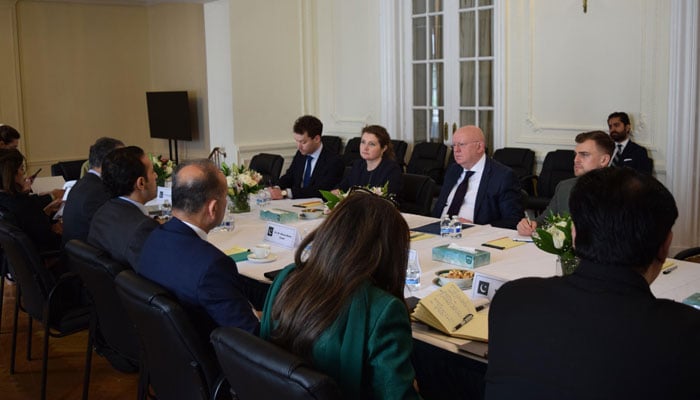
He highlighted India’s premature and unilateral actions, including the holding in abeyance of the Indus Waters Treaty.
He also apprised the envoy regarding India’s sponsorship of terrorism inside Pakistan.
Bilawal underscored that durable peace in the region hinges on the just and peaceful resolution of the Jammu and Kashmir dispute in accordance with international law.
Parliamentary delegation briefs E10 of UNSC
Later, at a meeting in Pakistan Mission today, the parliamentary delegation briefed elected members (E10) of the UN Security Council on India's unlawful aggression post-Pahalgam attack and holding in abeyance of the Indus Water Treaty (IWT), which is violation of international law and treaty obligations.
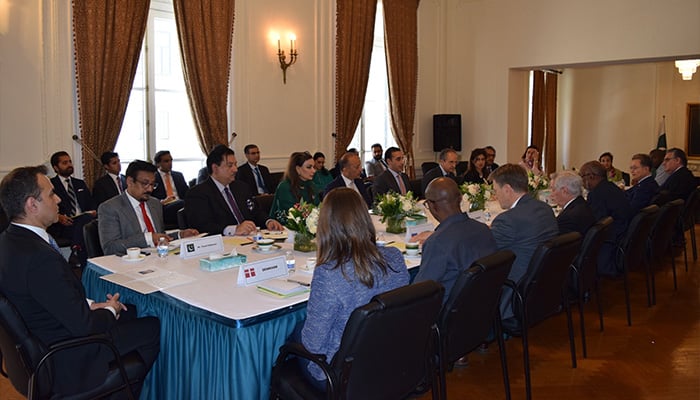
Pakistan reaffirmed its unwavering commitment to peace, dialogue, diplomacy, as well as the resolution of all outstanding issues with India, including the Jammu and Kashmir dispute in line with the Security Council resolutions, the Permanent Mission of Pakistan to the UN stated in a post on X.
The delegation called on the UNSC members to move beyond conflict management and actively support conflict resolution in South Asia.
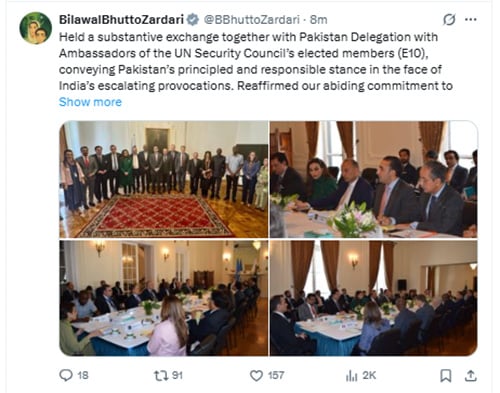
The E10 members appreciated Pakistan's outreach and welcomed its reaffirmation of commitment to peace and diplomacy.
They noted the importance of de-escalation, respect for international law, and the peaceful settlement of disputes.
They also emphasised that the UN Charter and its principles must guide state conduct, particularly in regions of high sensitivity such as South Asia. They acknowledged the risks posed by any further escalation and stressed the need to pursue diplomatic solutions.
Bilawal said in an X post that they "held a substantive exchange together with Pakistan Delegation with Ambassadors of the UN Security Council’s elected members (E10), conveying Pakistan’s principled and responsible stance in the face of India's escalating provocations."
He said that they "reaffirmed our abiding commitment to restraint, diplomacy, dialogue, and a rules-based international order. Underscored the dangers of India’s weaponisation of water by violating Indus water treaty and resolving the Kashmir dispute in accordance with UN Security Council resolutions."
"Pakistan unequivocally condemns terrorism in all its forms and remains a victim of terrorism, planned and sponsored from beyond our borders. We do not seek conflict, but stand fully prepared to defend our sovereignty and territorial integrity. South Asia cannot afford another crisis," it concluded.












